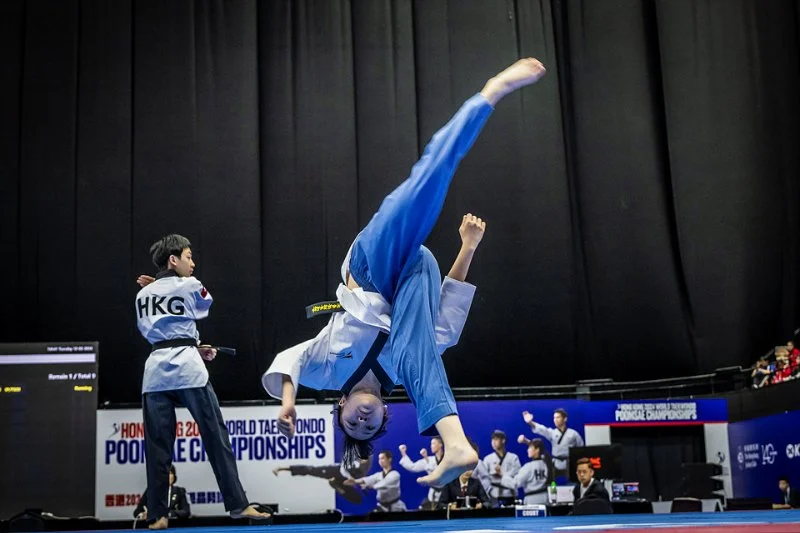
- 1 - Understanding Crowdsourced Judging in Tae Kwon Do Poomsae
- 2 - Advantages of Crowdsourced Judging in Tae Kwon Do
- 3 - Challenges and Controversies in Crowdsourced Judging
- 4 - How Crowdsourced Judging Could Evolve in the Future
- 5 - How Jeuns TKD Hub Can Prepare You for Crowdsourced Judging
1 - Understanding Crowdsourced Judging in Tae Kwon Do Poomsae
Crowdsourced judging refers to the practice of involving a large group of individuals, often from the general public or specific online communities, in the evaluation process of competitions like Tae Kwon Do Poomsae (forms). Traditionally, Poomsae competitions are judged by a panel of qualified judges, each evaluating the performance based on criteria like precision, technique, and fluidity. Crowdsourced judging takes this a step further by incorporating feedback and assessments from a broader audience, often through online platforms or live-streamed events.
The idea is to create a more inclusive and transparent judging process, where a diverse group can contribute to the evaluation. It also allows for a wider array of opinions, which could enhance the overall fairness and objectivity of the scoring system.

Monmouth Karate Academy / monmouth karate academy
Marlboro TownshipMonmouth CountyNew Jersey
300 Campus Dr Suite E, Morganville, NJ 07751, USA
2 - Advantages of Crowdsourced Judging in Tae Kwon Do
While the concept of crowdsourced judging in Tae Kwon Do is still relatively new, it offers a number of potential benefits:
- 1. Enhanced Transparency: By involving more people in the judging process, crowdsourced judging can make the process more transparent. Participants and viewers alike can see the feedback and scores provided by different judges, leading to a more open and accountable system.
- 2. Broader Feedback: Crowdsourced judging allows for a wider range of feedback, from both experienced martial artists and general viewers. This diversity of perspectives can highlight different aspects of a performance that might otherwise be missed by a smaller panel of judges.
- 3. Increased Engagement: Allowing a larger audience to participate in the judging process can boost engagement in the sport. It creates a more interactive and inclusive experience, which can be particularly appealing for online competitions and live events.
- 4. Reduced Bias: Traditional judging panels can sometimes be influenced by personal biases or subjective opinions. Crowdsourced judging, with its broader base, can help reduce the impact of such biases, potentially making the scoring process more impartial and accurate.
3 - Challenges and Controversies in Crowdsourced Judging
Despite its potential advantages, crowdsourced judging for Tae Kwon Do Poomsae also presents several challenges and controversies that must be addressed:
- 1. Lack of Expertise: One of the biggest concerns is that many of the individuals contributing to crowdsourced judging may not have the same level of expertise as traditional judges. While some may be seasoned practitioners of Tae Kwon Do, others may be less experienced or even completely new to the sport. This could result in inconsistent and inaccurate evaluations.
- 2. Subjectivity of Scores: With a large number of people involved in the scoring process, there’s a risk that scores may vary significantly from one individual to another. This can lead to confusion and frustration, as the criteria for scoring might not be as standardized or universally agreed upon as with traditional judging panels.
- 3. Technical Issues: Crowdsourced judging often relies on digital platforms and technology, which can introduce technical difficulties. Issues such as glitches, voting inaccuracies, or problems with the live-streaming process could undermine the credibility of the results.
- 4. Manipulation or Bias: There’s also the potential for manipulation, where certain individuals or groups might attempt to skew the scores in their favor, particularly in online competitions. Ensuring that the judging process remains fair and unbiased is a critical challenge for the system.
4 - How Crowdsourced Judging Could Evolve in the Future
As technology and the martial arts community continue to evolve, crowdsourced judging in Tae Kwon Do Poomsae could become more refined and widespread. Here’s how the process might evolve in the future:
- 1. More Advanced Scoring Systems: Future crowdsourced judging platforms may develop advanced algorithms to filter out unreliable scores or reduce human error. These systems could also implement tiered judging, where experts contribute to a final score, while the general public helps provide broader feedback.
- 2. Integration of Virtual Reality (VR) and Augmented Reality (AR): As VR and AR technologies become more accessible, they could be used to enhance the judging process by providing more immersive and detailed views of the performances. Judges and viewers could experience the Poomsae in a more dynamic way, improving the accuracy of evaluations.
- 3. Increased Professional Involvement: To address concerns about the lack of expertise, crowdsourced judging could incorporate professional judges who oversee or moderate the process, ensuring that the final scores remain accurate and fair.
- 4. Expanded International Reach: Crowdsourced judging could become more global, with martial artists and fans from all over the world participating in online competitions and providing feedback. This would create a more inclusive global community and allow for more diverse input in the evaluation process.
5 - How Jeuns TKD Hub Can Help You with the Right Dance Gear
At Jeuns TKD Hub, we’re committed to supporting the growth and development of Tae Kwon Do. Whether you’re preparing for a competition or looking to understand the nuances of crowdsourced judging, we offer a wide range of resources to help you succeed. From high-quality training equipment to expert insights into judging trends, we can help you stay ahead of the curve.
Visit Jeuns TKD Hub today to explore our products, services, and expert advice that will prepare you for the future of Tae Kwon Do competitions and crowdsourced judging.

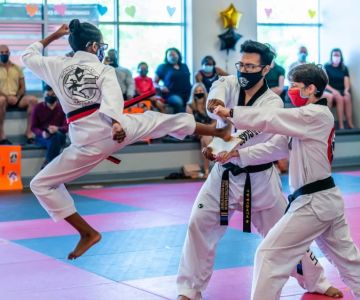
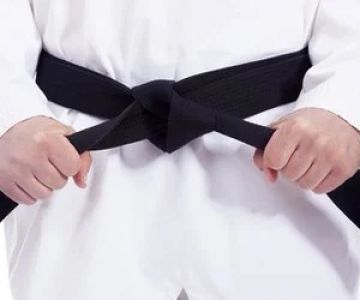

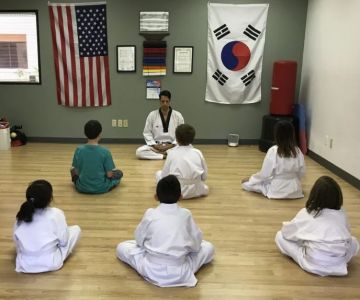
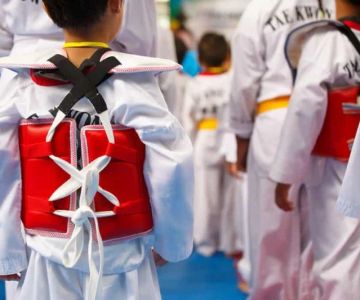
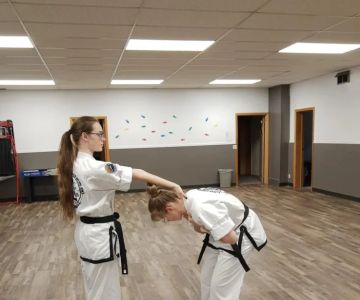
 Master Chang's Martial Arts Durham4.0 (86 reviews)
Master Chang's Martial Arts Durham4.0 (86 reviews) Complete Martial Arts Club of Hershey4.0 (76 reviews)
Complete Martial Arts Club of Hershey4.0 (76 reviews)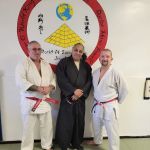 Susquehanna Valley Academy of Martial Arts0.0 (0 reviews)
Susquehanna Valley Academy of Martial Arts0.0 (0 reviews) Cordova's Taekwondo5.0 (2 reviews)
Cordova's Taekwondo5.0 (2 reviews) Maple Valley Martial Arts Center5.0 (4 reviews)
Maple Valley Martial Arts Center5.0 (4 reviews) Evolve Martial Arts4.0 (59 reviews)
Evolve Martial Arts4.0 (59 reviews)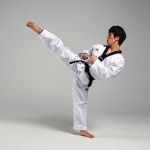 How to Execute a Jumping Roundhouse Kick to the Head
How to Execute a Jumping Roundhouse Kick to the Head How to Execute a Double Kick Combination in Sparring
How to Execute a Double Kick Combination in Sparring How to Perform a Flawless Axe Kick: A Step-by-Step Guide
How to Perform a Flawless Axe Kick: A Step-by-Step Guide DIY Tae Kwon Do Training Equipment for Home Practice
DIY Tae Kwon Do Training Equipment for Home Practice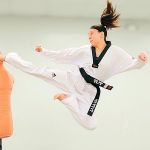 How to Increase Your Vertical Jump for Tae Kwon Do Flying Kicks
How to Increase Your Vertical Jump for Tae Kwon Do Flying Kicks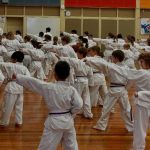 The History of the Tae Kwon Do Peace Corps
The History of the Tae Kwon Do Peace Corps